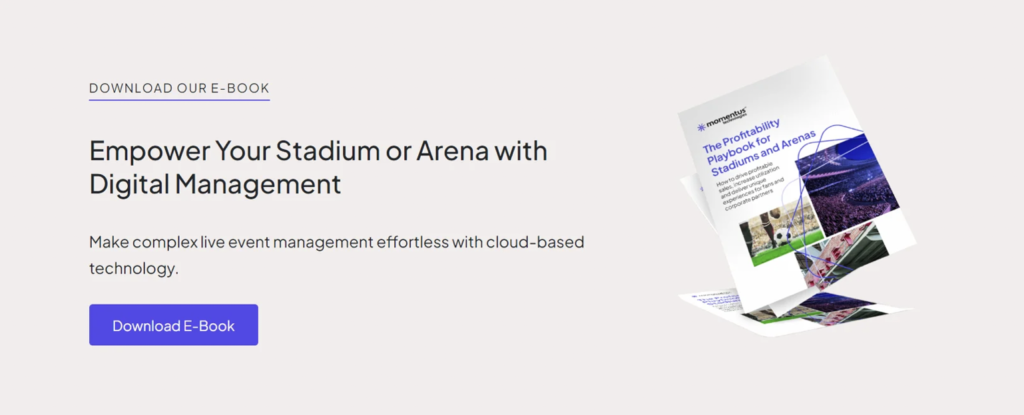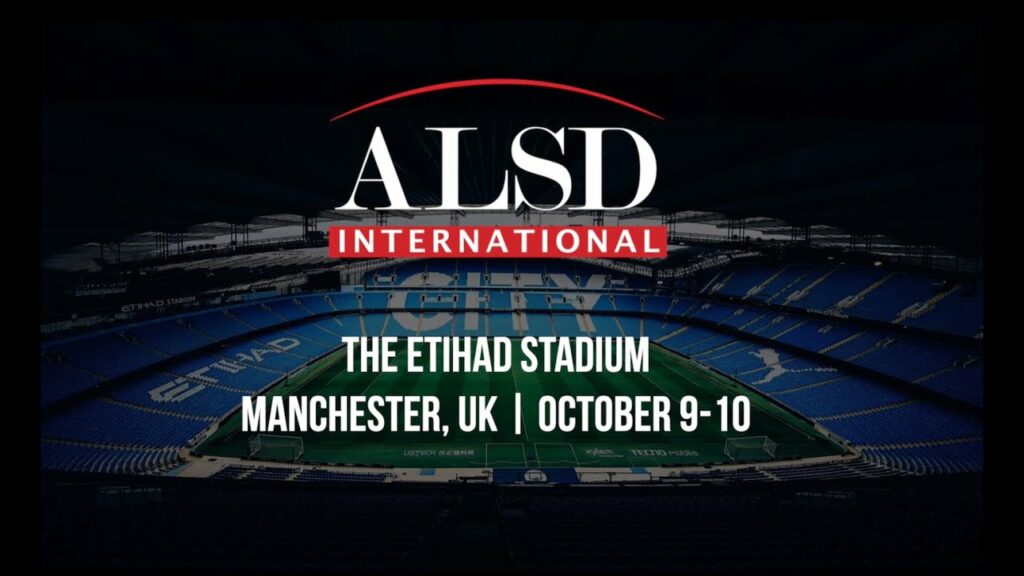- November 20, 2023
- Posted by: SportsV
- Categories: Case Studies, Featured Articles, Features, Home News, Industry News, News, Press Releases

Stadiums and arenas are among the most important destinations in their communities, home to wildly popular sports teams and other events that are anticipated year-round. Several sports teams are even considering new or upgraded stadiums and arenas, which could result in more than $10 billion for development by 2030.
The sheer scale of these venues and their events means millions in both attendee and sponsor revenue are often on the line — and entirely dependent on the performance of each event. This puts a lot of pressure on event organisers, managers and personnel responsible for the success of each event, such as:
- Ensuring event operations run smoothly.
- Mitigating the risk or damage from any incidents.
- Delivering on client and guest expectations.
- Communicating and collaborating on time-sensitive activities.
- Driving the best-possible results at ongoing and future events.
Luckily, there are practical and strategic ways these teams can ensure the success of each event, as well as the ongoing profitability of their venues themselves. Let’s identify four ways stadium and arena event teams can improve how they plan, sell and operate events.
Four Ways You Can Improve Events at Your Stadium or Arena
1. Align all stakeholders with a single source of truth.
Because stadiums and arenas must rely on variable elements like sponsorships and event attendance for revenue, they can be costly venues to operate. When Sales, Executive, Operations and other teams aren’t aligned with the same real-time information about events happening at their venue, they can face lost sponsorship or sales opportunities, unused or underutilised spaces and resources, inefficiencies in terms of resource utilisation and other costly shortcomings.
Centralising event data in a way that is accessible by all parties — each with their own role-based access — ensures all are working and modifying a consistent body of data to support essential opportunities and resources. A truly modern solution uses APIs to integrate with each party’s preferred digital platform, ensuring consistency. In these ways, all parties can be sure they’re getting the greatest value and insights from their stadiums’ or arenas’ assets.
2. Streamline onboarding and training team members.
Each event has its own unique requirements — for large-scale recurring events, these requirements can change dramatically year after year. For example, an annual sporting event may have different teams, concessions or audio-visual elements from one year to the next. Operations leaders may struggle to quickly and effectively onboard or train event personnel to meet these requirements as a result.
With a robust digital platform, leaders can streamline onboarding and training for new and unique requirements. The right digital tools are “event agnostic,” meaning they use familiar features that are nonetheless adaptable to meet the needs of a given event. Operational leaders can even implement self-training features and keep track of each staff member’s progress as they familiarise themselves with their responsibilities. Since these tools are both flexible and easy to use, both entirely new and longstanding employees can utilise training features.
3. Optimise communication and collaboration during an event.
Too often, event teams rely on disparate tools and inconsistent processes as an event is in progress. This can lead to misunderstandings, lost and inconsistent information and in the worst cases, accidents or other incidents.
For example, if a guest sustains an injury somewhere in the venue, senior leaders who review the incident later may not have the information they need if a standard reporting process was not followed to identify the severity of the incident.
Purpose-built incident management software enables event organisers to standardise communication and prepare formal digital checklists in a way that prevents these issues. Platforms that feature easy-to-use mobile access ensure anyone working the event can access information and follow incident management protocols effectively.
4. Position yourself to improve on future events.
With the right venue and event management solution, no insight goes unnoticed. That’s because every aspect of your events — preparations, sales, execution, outcomes and others — is visible and available for analysis in a centralised way. Stakeholders can get the “bigger picture” of their stadium or arena success, with details as large as overall revenue or as small as a report on a single incident at an event. These insights are critical for successful planning and preparing teams for future events.
A win for stadium and arena event management
Stadiums and arenas boast some of the most sophisticated events in the business. But all of that sophistication doesn’t have to come with unnecessary complexity. Streamlining event management for the most exciting and elaborate events in the world starts with a centralised tool designed specifically for positive results. It’s the venue leaders who take this next step who will be best positioned for winning events in the future.
Event management software for stadiums and arenas
Momentus is the industry’s leading, cloud-native digital solution for event management at stadiums and arenas. Event team members of all types use Momentus to drive sales, operations and business success for their most important and complex events and event spaces.
Since Momentus uses APIs to integrate with teams’ preferred tools, it’s a clear winner for modernising event management at your stadium or arena.
Contact Momentus today to discover how they can help improve your event management operations.




